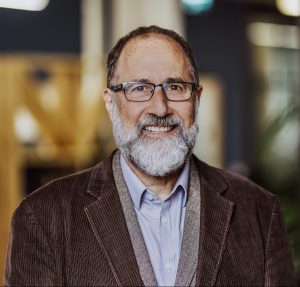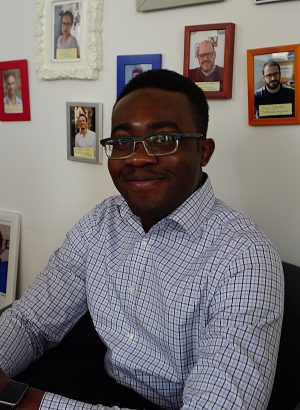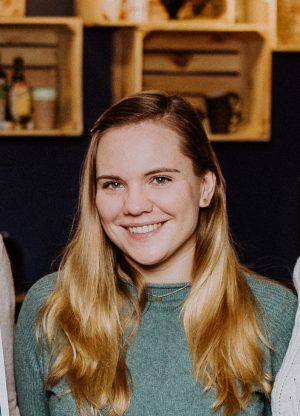Saving and investing well means stability, responsibility, security. Saving enables people to pursue their dreams, to sleep better at night, to retire with dignity. With a pan-European marketplace for savings, investments and pensions, Raisin’s objective is breaking down barriers to help Europeans save better — and live better.
Where does learning and development fit in?
We’re doing pretty well: on Europe’s FinTech50 list for the 4th year in a row, again in the top 5, around 100% growth rate year on year in how much money we’ve brokered. But a company that grows fast needs to be quick and responsive not just externally, but also internally. I.e. as Raisin develops, we’ve always known that Raisin employees’ development is at least equally important as we encounter new challenges with our new markets, new products, new partners.
It’s not just that we need to: we also want to. People who work at companies with innovative new business models tend to be active, energetic, hungry for a challenge. Of course we offer flexible working hours, a well-stocked kitchen and other beloved benefits to help with work-life balance and keep ourselves healthy, happy and awake. But we’ve also thought a lot about how to enable employee growth and development. Five Raisin team members share their perspectives, from senior management, to employees who have grown together with Raisin, to the Talent & Culture team.
Jim, what would you recommend young people starting their careers to look for in a company, if they want to learn and grow?

Jim Banister, Raisin Product Chief: After a few decades of working in startups, growth companies and Fortune 500 enterprises, a pattern emerged for me when choosing a company or role. I distilled it into three variables for making career choices, and use them to this day.
(1) IMPACT for a PURPOSE: What potential for impact will I have — what opportunities for problem-solving or value creation will I get, and for what purpose and customer. For me, the impact can be large, or it can be “small”, from which there can often be be profound learnings in a safe context. As long as it’s “clear.”
(2) TEAM: Who are the team — with whom do I get to work to effect that impact. Can I learn from them? Can they learn from me? Do I have clear opportunities for mentorship or menteeship. Are they a “take credit” bunch, or “give credit” teammates? Are they Generous? Curious?
It’s up to us as individuals to decide what kind of team for which we’re looking. For me, I need one where there is high alignment between culture and purpose. And how uniform is it across the company. What is the “DNA” of the company, and team you’d be joining? It is often set by founders or senior leadership or the primary stakeholder.
And if you’re planning an entrepreneurial or intrapreneurial endeavour– partner well. Do not choose people “like you.” Find people who are aligned to the culture and purpose you’re keen to affect, and beyond that ensure their Venn diagram of talents and passions is complementary– they don’t overlap much with yours.
(3) CONSTRAINTS and RESOURCES: Within what constraints, or with what resources am I, or we as a team equipped to solve problems and create value? Creativity shines within constraints — they are not “bad.” Though ideally they are “clear” and “transparent.” Is the funding situation clear? Is the company committed to the mission you’re being invited or asked to take? This speaks to your risk profile, and comfort level in ambiguity.
What about how this works in action? We asked a couple of Raisin employees with development experiences of their own.

Tobi, you started as a working student and are now a full-time employee. What are some key factors that enabled you to grow at Raisin?
Oloruntobiloba Onalaja, Junior Research Analyst: First, the people and atmosphere. One of the things I’ve always said to anyone that asks me about Raisin, is that the people play such a huge role in what makes the company special. Especially within my team where everyone is not only friendly and approachable, but also gregarious and experienced. Working in an environment where everyone has these qualities makes it that much to freely ask questions and learn from them as I complete my daily tasks and grow.
And second, the opportunity. I joined Raisin as an intern just a little under 2 years ago, and even then I could see the impact my work had on the overall company and how it keyed into our business model. As an intern still trying to find my footing and learn as much as possible, this was something I really appreciated and egged me on to learn more and see how I could develop and contribute more. Through my time at Raisin as an intern to a working student and now a full time employee, I have not only been given the opportunities to learn and develop from some of the smartest people in the field, but have had tremendous amounts of support from a company and team filled with people I would certainly call my friends.
Marcel, how did you go from writing your bachelor thesis on Raisin as a working student in 2014 to project manager in business development at the newly rebranded Raisin Bank (formerly MHB-Bank of Frankfurt, acquired by Raisin this year) in 2019?

Marcel Kroitblat, Business Development at Raisin Bank: When I started as a working student, and then “entrepreneur in residence,” the company was 30 times smaller and I was able to help out everywhere, taking part in different projects in every department, including working closely with all three founders — a great experience in itself. We all worked in one room, so the mission was palpable with the founders’ presence all the time. It might not be reproducible today since we’re so much larger, but the sense of mission is still just as clear. If you start today, within a few weeks you know what their vision is and what impact you’re having, within the company and more broadly — on society.
Once I settled into business development I got to fly around Europe with the CEO and co-founder, providing support for pitching new partnerships at first but then progressively learning and taking on a bigger and bigger role, until I was getting to do pitching myself. At some point though after 3 and a half years, the learning curve wasn’t as steep and it seemed like a good moment to seek out new opportunities. So I worked for a bigger startup for awhile and then actually started my own company with several partners.
But when a moment came to move on from that and I happened to meet on of Raisin’s founders for drinks, the idea emerged to return It was clear though that the best thing would be to re-join in a new role. Since the company is growing too — and was just acquiring Raisin Bank — this turned into the perfect opportunity. I’m now part of the Raisin family again but got to move to a new city, Frankfurt, and to take on really exciting new challenges.
Then we turned to our experts on the Talent & Culture Team for advice.
Juliane and Maja, what key factors should job-seekers look for in a company if they want to grow and develop?

Juliane Domann, Learning and Development Manager, and Maja Bazan, Senior Executive Development Manager: If you want to check whether a company you’re considering joining encourages your growth, look at whether the company offers thing like…
· Defined career pathways
· Trainings budget and opportunities (internally and externally)
· The same amount for everyone (fairness; no department is more valuable than others)
· E-Learning tools and options
· Clear administrative structures and processes (…what options do I have and how do I access them)
· A clear company strategy and purpose
· Inspiring leaders
· Is there a high potentials program? (e.g. Raisin’s Talent Program)
· Is there a mentoring program?
· Flexibility (generation Y & Z) — think mobile devices; trainings days
· Inclusion and diversity. To work with different generations, genders; not just focused on earning money but also volunteer projects
· Having fun
· Open communication
If you’re curious, you can learn more about our approach to learning at our careers page.


